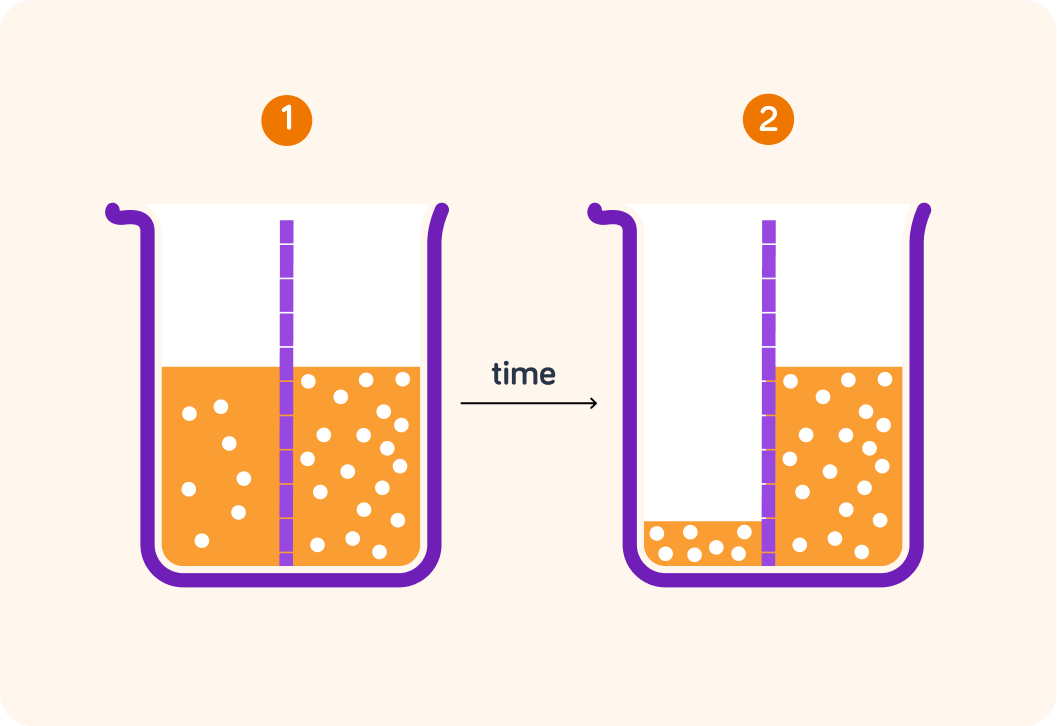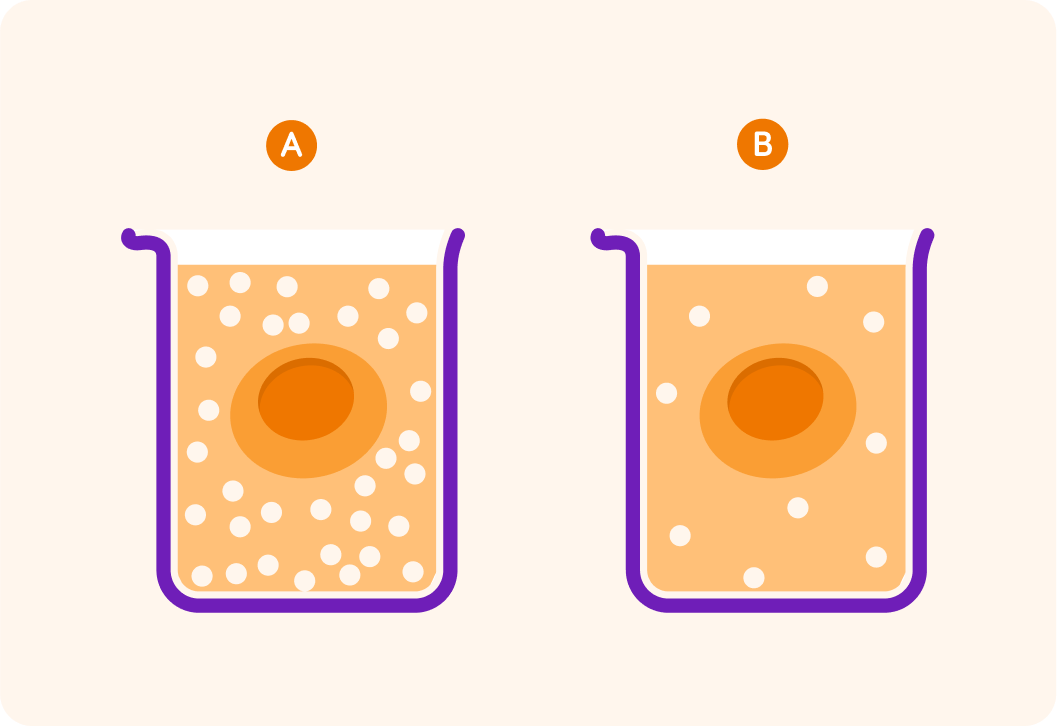YOU ARE LEARNING:
Osmosis

Osmosis
Osmosis refers to the transport of water molecules in and out of cells, to allow organisms to function.
In this lesson we will look at osmosis, which is a type of transport.
What do you think is transported during osmosis?

Take a look at the beaker to the left in the picture. What is different between the left- and right-hand side of the beaker?
A) The amount of water B) The concentration C) The volume


Now look at both beakers. What has happened over time?
A) Water moved B) Particles in the solution moved C) Water and particles moved


Concentrated vs. diluted solution
When there are more particles in the same amount of water, we say that is a concentrated solution. When there are fewer particles in the same amount of water, we say that is a diluted solution.

How did the water move?
A) From concentrated solution to diluted solution B) From diluted solution to concentrated solution


In osmosis...
water moved from a more diluted solution to a more concentrated solution, which then dilutes the more concentrated solution some.

When will water move as a result of osmosis?

Osmosis happens when diffusion can't happen. If cells can't move one way, water moves the other way instead to balance the concentration. Why might diffusion sometimes be impossible?

Osmosis is the movement of water through a partially permeable membrane when there is a difference in concentration between the areas on either side of the membrane. Water will move from a diluted solution to a concentrated solution.
Sometimes, cells experience a concentration difference with the outside.
This can lead to osmosis.

In A, a cell is in a concentrated solution (compared to the inside of the cell). How will water move as a result of osmosis?
A) Into the cell B) Out of the cell C) Water will not move


If water moves out of the cell, what will happen to the cell?
A) Nothing B) It will swell C) It will shrink


In B, a cell is in a dilute solution (compared to the inside of the cell). How will water move as a result of osmosis?
A) Into the cell B) Out of the cell C) Water will not move


If water moves into the cell, what will happen to the cell?
A) Nothing B) It will swell C) It will shrink


If a cell is placed in a solution with the same concentration as inside the cell, what will happen?

If cells are in a concentrated solution, water moves out of the cells, and the cells shrink. If cells are in a dilute solution, water moves into the cells, and the cells swell.
